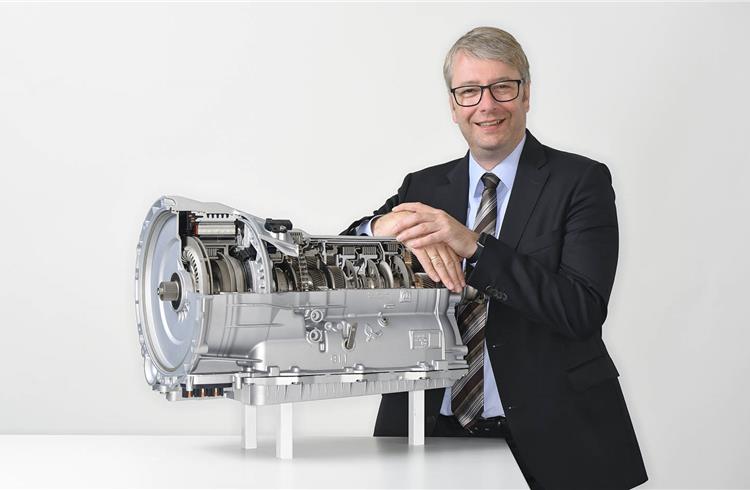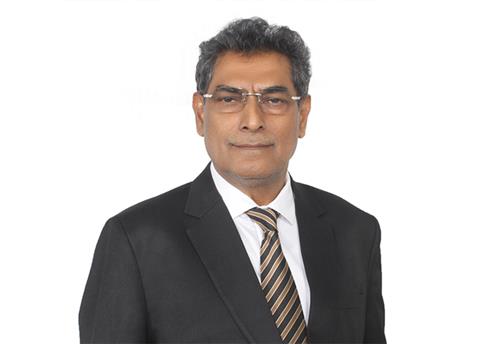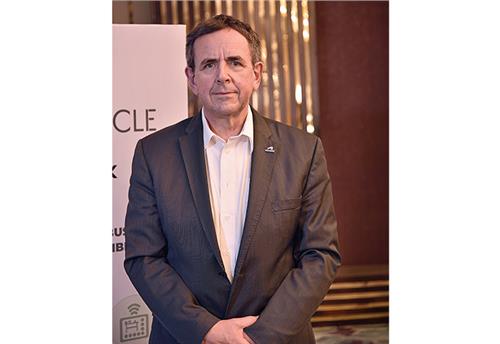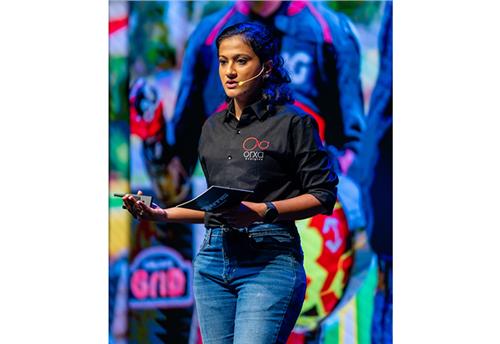‘AI work is growing in the India Technical Centre.'
ZF Friedrichshafen AG recently inaugurated its first India Technical Centre in Hyderabad. The Tier 1 supplier foresees a sharp growth curve for the facility as well as for its business in India.
ZF Friedrichshafen AG recently inaugurated its first India Technical Centre in Hyderabad. The Tier 1 supplier foresees a sharp growth curve for the facility as well as for its business in India. Global CEO Dr Stefan Sommer spoke to Sumantra B Barooah about the expanding role of the technical centre and the growth trajectory for the company in India.
Could the Indian technical centre grow to be the largest ZF's network of technical centres around the globe?
Yes, we have a very aggressive growth plan for that. Of course, software capacity is the field of technology which we grow most aggressively. We foresee that by the year 2020 this centre will reach a level of 2,500 people, which is the level of all our engineering centres all over the world but it will not stop there.
Software growth will continue and we will continue to invest in that. I see a big opportunity that it will grow into our biggest centre.
What would the India technical centre be a centre of excellence for?
We have a global network of tech centres. For India, we are seeing the volume in the area of artificial intelligence but also in providing the right interfaces for the software, up to complete algorithms, and to serve all the engineering centres in the global network with its software competencies. This is the task for the India tech centre.
One of the challenges for ZF to grow its business in the way it wants is the challenge for cost-value equation because ZF has historically been a high-quality, premium-cost product manufacturer. Will this tech centre play the role of making the cost-value proposition stronger?
We will also have mechanical engineering. The motivation is to have a much better understanding of the Indian cost and cost performance levels and then design products which serve the Indian market much better from the perspective of cost:performance balance. Therefore, we also think that there will be a lot of motivation for the Indian market in producing hardware components from this India tech centre, in having the right mechanical engineering expertise for cost-efficient products.
The Indian automotive industry is also unique. Would you look at developing, say for example, a transmission specifically designed for India and India-like markets?
Yes, that’s clearly the motivation to have it in here. Together with our service partners and the expertise we are buying from them, we would like to have a better understanding for the special Indian needs.
With the Indian market growing in mobility, we think that this could be also a volume market for our products. We start with the right designs from this India tech centre.
ZF has had a long presence through multiple joint ventures in India. Last year, you opened the new Chakan integrated facility. ZF India's overall revenues stand at around 1 billion euros. In year 2025, where do you see it growing to and what contribution would the India Tech Centre provide in achieving those targets?
We have a clear strategy – to over-proportionately grow our sales revenue in India as far as in the rest of Asia-Pacific. Although we do not have all business on a contractual basis, I could imagine that we will double our sales turnover in India by the year 2025.
Let's shift gear and talk about some global developments. Electrification and autonomous driving are two key megatrends. Do you foresee the emergence of any new megatrend? If yes, how are you preparing for that?
We share the same megatrends. We identify three megatrends for us – fuel efficiency, automated/assisted driving and safety. Everything depends a little bit on the other. With autonomous driving, we won't have from the very first day collision-free rides on the road, so safety and autonomous driving are tied together.
So you are talking about safety not as the way we look at it today, but from a different perspective?
Future safety, safety for all vulnerable road users like pedestrians, cyclists, two-wheeler and car owners. And also for those people driving in autonomous driving cars not watching the traffic, to protect them in a different sitting position in the car or whatever because we need to think design like new means like a (seat) belt or airbag systems to cope with those situations.
What could an example of that be?
It could be more sophisticated systems but it could also outside airbags to absorb the energy outside the car. This gives more freedom for design of the passenger compartment but also more freedom for the passengers to be in an out of position kind of situation.
In a fast globalising automotive world, what is ZF's strategy to keep up with the pace?
We have a strategy that we want to balance our business. We balance between industrial technology, truck technology and passenger car technology. And we balance on a regional basis, from Asia-Pacific to Europe to North America.
We also balance the inside of the car from chassis technology and driveline technology so that we are not too dependent on one disruptive change. For instance, if there is a disruptive change from the combustion engine drivetrain to a pure battery electric drivetrain, we can serve that. We are not one hundred percent dependent and we are strong enough as a company to transform from our technology from point to the other point. So, to stand, or to build up our business on a lot of pillars, that is the strategy to be robust against the developments.
In certain parts of the world we are seeing the idea of protectionism taking a different shape, which perhaps may go against the interest of some business organisations. Is it a growing concern for you?
Yes, of course. We believe free trade in the world always increases growth, brings wealth to people and therefore we are a strong believer of free trade and competitiveness in the world. Historically, it is proven to be true. Protectionism is critical from our perspective. It will shift the value chain.
We, as a supplier, have to follow our OEMs. They are doing end customer business and if our customers are moving their plants, we anyhow have to follow. It's critical because we have currently installed capacity. If you just shift this capacity due to political reasons, it is destroying value because we have to reinvest and that makes no sense. We would rather like to invest in growth and also bring wealth to the people than serve any protectionism anywhere in the world.
RELATED ARTICLES
BRANDED CONTENT: 'We aspire to be among the leading sensors and electro-mechanical products manufacturer'
P. Parthasarathy, Founder & Managing Director, Rotary Electronics Pvt Ltd shares the company's commitment and vision to ...
‘Big opportunity for startups lies in products in India’: Detlev Reicheneder
As electrification levels the playing field, the focus on tech and R&D to bring innovative products is the mantra for st...
'I hope my journey makes people say — I can do this too'
Ranjita Ravi, Co-founder of Orxa Energies — the maker of Mantis e-bikes — shares the challenges of building a startup an...





 05 May 2017
05 May 2017
 10641 Views
10641 Views





 Autocar Pro News Desk
Autocar Pro News Desk




